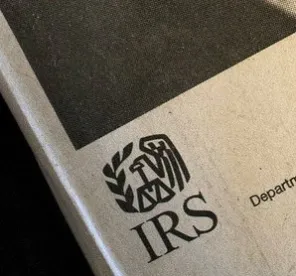On June 26, 2020, an administrative law judge in the New York City Tax Appeals Tribunal In the Matter of Mars Holdings, Inc. [TAT(H) 16-14 (GC)] held that the city could impose its corporate tax on the gain on the sale of a partnership interest in a partnership that did business in New York City, even though the taxpayer’s commercial domicile was outside New York.
Since the 1970s, Mars Associates, Inc., a New York corporation, held passive minority interests in three partnerships that owned rental real estate in New York City. Based on owning interests in partnerships that did business in the city, Mars filed NYC corporate tax returns and paid tax to the city on its share of the income, gains, and losses of those partnerships. The parties stipulated to the fact that during the tax years neither the predecessor nor the petitioner/taxpayer engaged in a unitary business with the partnerships. It was also stipulated that neither the petitioner nor its predecessor had any other business in New York City and that their only office was located in New Jersey. The petitioner explicitly did not raise any issues under the U.S. or New York state constitutions as to how this tax was applied to it.
On Dec. 5, 2011, the petitioner, Mars Holding, Inc., was formed in New Jersey and, in a tax-free reorganization on Dec. 20, 2011, Mars Associates was merged into Mars Holdings, Inc., the petitioner/taxpayer. On March 8, 2012, Mars Holdings sold its partnership interests and recognized a capital gain of $15.454 million. That gain was reported on petitioner’s federal tax return and shown on the NYC corporate tax return but excluded from NYC tax with the statement: “Gain on sale of partnership interest not used in trade or business in NY.”
The taxpayer argued that since the NYC corporate tax is based upon the Internal Revenue Code, federal conformity for years prior to the 2017 Tax Cuts and Jobs Act requires sourcing the receipts from the sale of the intangible partnership interest to the commercial domicile of the taxpayer (citing Grecian Magnesite Min., Indus. & Shipping Co., SA v. Commr. of Internal Rev. Serv. 926 F.3rd 819 (DC Cir 2019) affirming 149 T.C. 63 (2017)).
A generally accepted principal of state and local taxation is, as set forth in the highly respected and frequently cited treatise Hellerstein on State Taxation, Third Edition Par.20.05(6):
Most states implicitly recognize the doctrine of mobilia sequuntur personam and its corollary that income from intangibles is taxable by the state of the owner’s domicile. Hence, they generally limit their taxes on income derived by nonresidents from intangibles to income from intangible property that is used in a business in the state or that has acquired a business situs there. Citations omitted.
Similarly, for corporate taxation Hellerstein states at Par 9.03:
In the context of state corporate income taxation, the corporation’s “commercial domicile”—the principal place from which the corporation’s business is directed —gradually replaced the corporation’s “legal domicile”—the state of its incorporation—as the situs to which income was assigned under the mobilia principle. The U.S. Supreme Court gave the commercial domicile rule its approval in Wheeling Steel Corp. v. Fox. The Court, proceeding from the traditional principle that intangibles are taxable by the state of domicile under the mobilia doctrine, held that where a corporation maintained only its formal corporate records required in the state of incorporation, and “the business operations are conducted outside that state,” a “legal fiction” would “dominate realities” if the state of “the actual seat of its corporate government,” the state in which “the management functioned,” were denied the power to impose ad valorem taxes on the corporation’s intangibles. The commercial domicile doctrine has subsequently been widely applied by the Supreme Court and state courts to sustain various types of taxes levied by the state of commercial domicile. Citations omitted.
The administrative law judge (ALJ) applied the nexus provisions in the NYC tax law and found that holding the interests in partnerships doing business in NYC established nexus and subjected the petitioner to NYC corporate tax. The ALJ also determined that there was nothing in the city’s corporate tax law that permitted the exclusion of the gain on the sale of the partnership interests and that federal conformity was not required in these circumstances.
In Mars the ALJ relied on the commissioner’s statutory power pursuant to NYC Administrative Code Section 11-604.8 to adjust items of income and apportionment factors to include the capital gain at issue. What is not clear from the face of the determination is whether the allocation to NYC was based upon the partnership’s factors that flowed through to Mars, or something else. In exercising the discretion afforded by the statute, the adjustment must “effect a fair and proper allocation of income …reasonably attributable to the City.” Admin. Code Section 11-604.8 quoted In Mars ft. nt. 6. It is an open question as to the proper way to reflect capital gains derived from the sale of nonunitary, independently managed partnerships held by a corporation with a commercial domicile outside New York. There are no regulations, pronouncements, or guidance issued by the Department of Finance informing taxpayers of how the city will treat this income or how to allocate or apportion that income to the city. Using the partnership factors may not be a proper reflection of the allocation of the capital gain to the city.
An exception to the ALJ Determination will be taken and the appeal will be heard by the New York City Tax Appeals Tribunal. There is a similar case pending at the Tribunal [Goldman Sachs Petershill Fund Offshore Holdings (Delaware) Corp. TAT (E) 16-9 (GC)] that will have oral argument shortly in which issues of whether the tax violates the U.S. or New York constitutions as applied to the taxpayer in that case.



 />i
/>i

